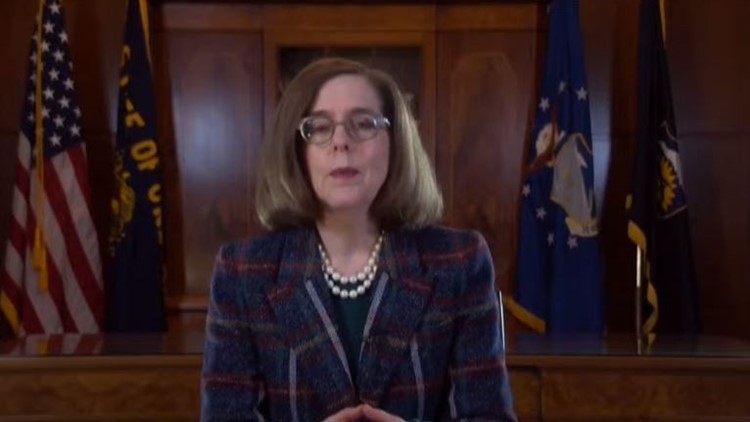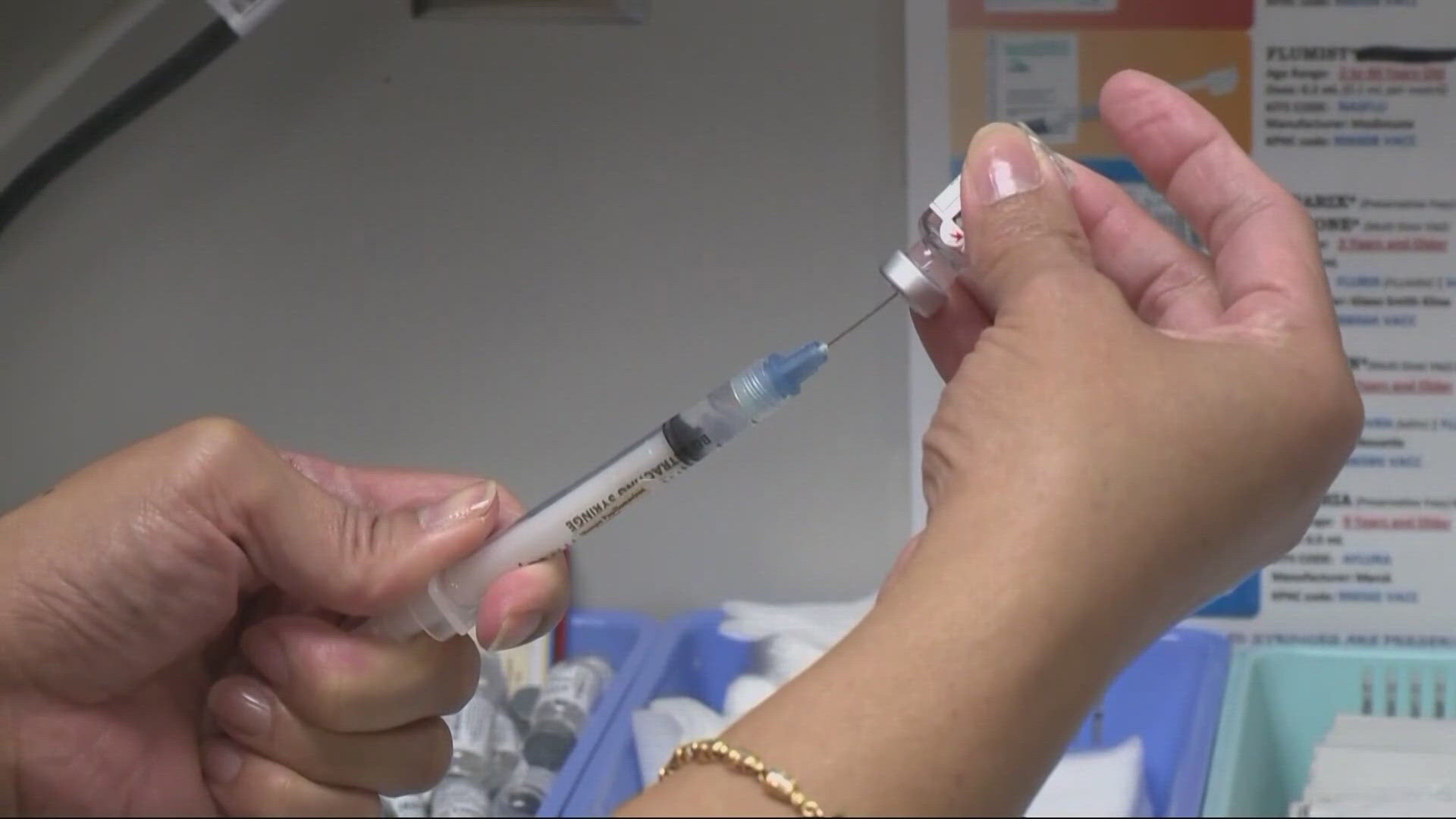PORTLAND, Ore. — Nearly a year after the first COVID-19 case was confirmed in Oregon, Governor Kate Brown delivered her annual State of the State speech on Thursday.
During the 45-minute speech Brown reflected on the challenges Oregonians have faced in the last year — the pandemic, protests and wildfires — and outlined her goals for the future, focusing on racial equity, ensuring children return to school, mitigating wildfire danger and expanding health care access.
In the State of the State address, which is usually presented to a joint session of the Oregon Legislature but instead was held virtually due to the pandemic and pre-recorded, Brown defended her approach to the pandemic.
The governor's statewide COVID-19 safety measures, which have included closing schools and businesses, requiring masks and closing restaurants for inside dining, have been described as the strictest in the nation.
Brown compared the state’s efforts to slow the spread of the virus to a marathon.
“In a short race, like the 100-meter dash, you run as hard as you can for a short period of time," Brown said. "In a marathon, you have to play the long game.”
The governor added that when it comes to the pandemic Oregonians are “faring better than most of the country.”
“Because we were cautious, because we listened to experts, because we wore masks and limited our gatherings, because we enforced health and safety rules in businesses, we as Oregonians will finish this marathon and we will finish strong.”
The Oregon Health authority reported Thursday that the number of COVID-19 cases in the state since the start of the pandemic surpassed 135,000. The death toll is 1,843.
During the governor's speech, the Democrat also identified specific goals for the future, one of the main focuses is racial equity.
Oregon made national headlines in 2020 as nightly racial justice protests, following the killing of George Floyd, were held in Portland. Many of the protests ended with clouds of tear gas and clashing with police.
“The first step to creating opportunity is recognizing that racism is endemic to our systems, impacting every part of our culture and our economy,” Brown said. “I’m committed to ensuring that the world we build as we emerge from this last year is a more equitable one.”
Brown also highlighted proposals that may be introduced during the 2021 legislative session, including increasing the state's firefighting resources, expanding broadband access in rural communities and increasing health care funding, expanding the automatic voter registration system.
“We know that all Oregonians felt the impacts of the emergencies our state weathered last year, but the impacts are not felt equally,” Brown said. “That’s why our state budget and policies must be built on a foundation of equity and inclusion.”



